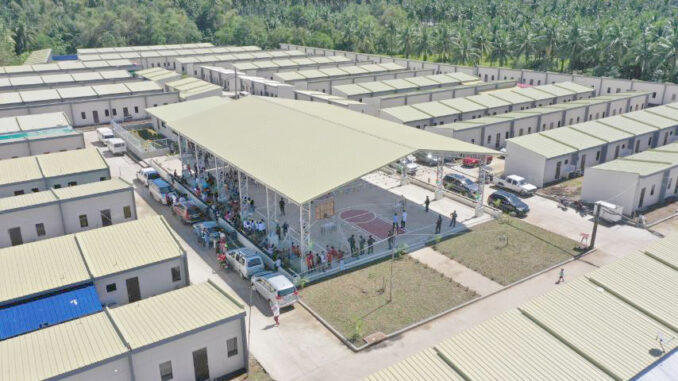
Housing industry leaders expressed concern over the proposed bill to amend the socialized housing provisions of the Urban Development and Housing Act (UDHA), saying this could be in conflict with the massive social housing program—4PH—already set in place by the administration of President Ferdinand Marcos Jr.
The House of Representatives approved House Bill No. 10772 which amends the conditions for compliance with the balanced housing requirement, or social housing quota, imposed on private developers.
Under the 30-year-old UDHA, a developer proposing to produce a residential subdivision or condominium is required to develop a socialized housing project equivalent to 15 percent of the total project cost or area of the subdivision, or 5 percent in the case of a condominium.
“The entire housing industry commends the wisdom and resoluteness of President Marcos Jr. and the DHSUD in coming up with the ‘game-changing’ 4PH program which now, finally, embodies the fundamental precept that housing the poor is a government’s responsibility and not the private sector’s,” said Chamber of Real Estate and Builders’ Associations (CREBA president Noel Cariño in a statement.
The issue is expected to be among the major discussion points at the upcoming national convention of CREBA slated from Oct. 16 to 18 this year at Hilton Hotel in Clark Freeport Zone, Pampanga.
“In its recent press briefings, the DHSUD has indicated that private developer participation in socialized housing is no longer necessary, and will be dispensed with altogether, as the government is already all set to assume the role of developer. The DHSUD expressed confidence that 4PH will be able to produce more than 3 million affordable housing units in the next three years. The President undoubtedly agrees,” said Carino.
CREBA said HB 10772 appears still grounded on the premise that coercing private developers would resolve the problem of housing the underprivileged. “The quota under the UDHA is by itself already onerous, even as it has been proven ineffective; still, the bill prescribes new conditionalities that would be impossible for developers to meet, and severe sanctions for non-compliance,” CREBA said in the statement.
“For instance, under the UDHA, developers have a choice of where to locate the socialized housing component under quota – or what we call “compliance project”.
Now, under HB 10772, the compliance project should be within the main project itself, or in the same locality as the main project.”
“This is practically an impossibility when the main project is in Metro Manila or urbanized areas or peripheries, where cheap land is not available. How can private developers build socialized housing on high-value lands, and still comply with the required building specifications and mandated price ceilings,” CREBA said.
“The bill also provides that instead of actually producing social housing units, developers may instead pay 25 percent of the required compliance cost to the LGU where the main project is situated,” it said. “This is meant to facilitate compliance with the quota. In fact, however, the whole amount represents a total loss for the developer, as it constitutes a donation or a straight handout to the LGU.”


Be the first to comment